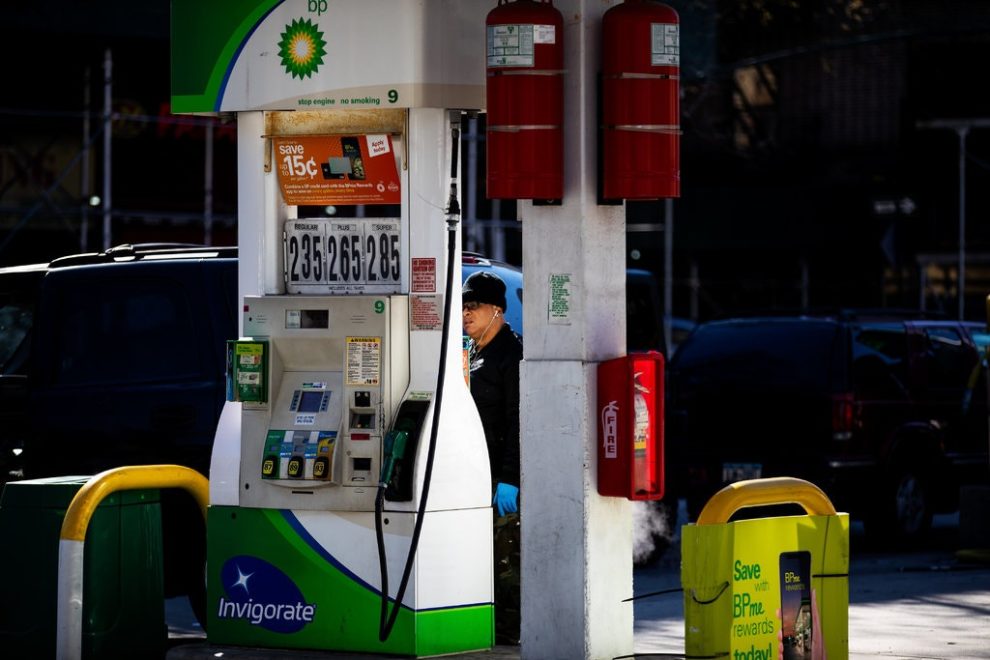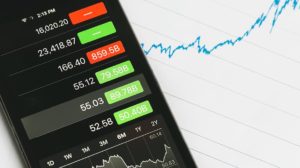The energy giant said its oil and gas assets were worth less, a move reflecting broad changes in the industry.

BP sent a signal to investors on Monday that the economic shock of the pandemic would reverberate for years, and that less gas and oil would probably be needed in the future.
The London-based oil giant told shareholders the company expected to write down as much as $17.5 billion of its oil and gas holdings in its next quarterly report.
The write-downs are an acknowledgment that the oil and gas fields on BP’s books are not worth as much as they used to be, and will probably stay that way for the foreseeable future. The move reflects broad changes in the energy industry as companies adjust to a new environment.
“Everywhere I have been — inside BP, as well as outside — I have come away with one inescapable conclusion,” Bernard Looney, the chief executive, said in a speech in February. “We have got to change.”
Since then, the coronavirus pandemic has caused steep declines in demand and prices for oil and gas that could linger for years. In addition, governments, consumers and investors are increasing pressure, especially in Europe, for oil companies to curb the greenhouse gas emissions produced by their fossil fuels.
With the write-down, which could amount to as much as 12 percent of the previous book value of the oil and gas assets, Mr. Looney, 49, is preparing the company for a future in which it will produce less fossil fuel than previously expected. It is likely to be the largest write-down since 2010, when the company recorded a $32 billion hit related to the Deepwater Horizon disaster in the Gulf of Mexico.
- Thanks for reading The Times.
In past years, companies rushed to acquire oil and gas fields and bring the crude or natural gas to market. Now, analysts say, investors are skeptical of all but the most profitable investments in fossil fuels because it is not clear that there will be demand for them — especially as many governments strive to meet the requirements of the 2015 Paris agreement on global warming.
“It is very clear that most energy companies are going to look very different in quite short order,” said Stuart Joyner, an analyst at Redburn, a market research firm. “The market will not pay for huge amounts of growth from these companies.”
Mr. Looney, an Irish citizen who was head of BP’s oil and gas exploration and production unit before moving into the top role, has been focusing on these issues. Promptly after becoming chief executive in February, he pledged to bring the London giant’s carbon emissions to net zero by 2050 or sooner and embarked on a sweeping reorganization to aid this quest.
The darker economic environment caused by the pandemic, he said in an email to employees on June 8, “is driving us to to move faster — and perhaps go deeper at this stage than we originally intended.” The makeover is now expected to lead to the loss of 10,000 jobs, or nearly 15 percent of the work force.
The write-downs are being taken for two reasons. BP has cut its long-term expectations of oil and gas prices by about 30 percent, to $55 a barrel for oil, a move that reduces the value of its assets. The company is also writing off resources, in places like the Gulf of Mexico and Canada, that it has on its books but may decide not to develop over the coming decades.
“BP is already getting to grips with the idea that” its oil and gas fields are worth less than it recently believed, said Luke Parker, an analyst at Wood Mackenzie, a market research firm. “Indeed, some of them are worth nothing.”
Oil companies periodically review their businesses, leading to write-downs. In December, before the pandemic, Chevron took a $10.4 billion write-down, mostly for natural gas properties amid a glut. Analysts at Bernstein, a market research firm, said in a note on Monday that BP’s charges were the largest among major European oil companies in a decade.
Analysts said the $70-a-barrel price that BP was using looked increasingly unrealistic and was higher than that of other major oil producers in Europe. Analysts at Barclays wrote in a note to clients on Monday that BP’s new pricing assumption was the lowest among a group of European oil giants, including Royal Dutch Shell and the French company Total. BP’s move could put pressure on rivals to take similar steps.
Still, analysts at Morgan Stanley said Monday that BP’s $55-a-barrel price assumption might turn out to be “optimistic” because that level would encourage increased shale drilling in the United States, which could further depress prices.
Mr. Looney said in a statement that he was “confident that these difficult decisions” would better enable the company to compete as the energy industry changed. Several analysts, however, speculated that BP was likely to cut its dividend, a key consideration for investors.











Add Comment